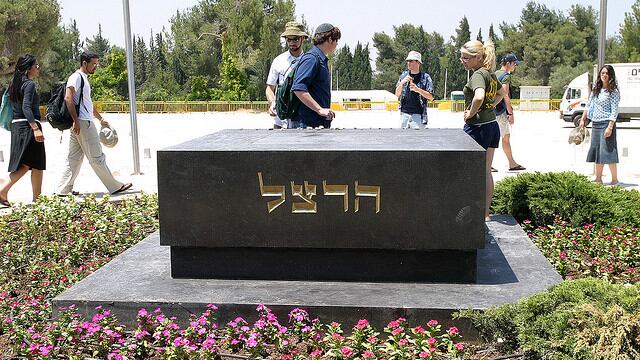As President Barack Obama works on his “Jerusalem Speech” to supplement his “Cairo Speech,” he should focus on three goals. First, the President should show Israel some love—Israelis need reassurance that Obama Hearts Israel. This need is rooted in millennia of persecution reinforced by recent decades of delegitimization, triggering lethal attacks against Jewish homes, schools, synagogues, and children. Second, the President should reassure Palestinians, trying to push the Middle East conflict from a zero-sum stalemate to a win-win. And third, he should try opening a window of hope, if not quite finding the key to opening the door to renewed negotiations and real progress.

The first challenge is the easiest. Israelis love to be loved. While visiting Theodor Herzl’s grave, Obama should use Herzl’s life to affirm that the Jews are a people, a nation, not just a community of faith, with ties to their homeland stretching back millennia. Herzl was a nineteenth-century liberal nationalist, not an imperialist or colonialist, whose founding of modern Zionism predates the Holocaust by half a century. Truly understanding Herzl entails moving beyond the defensive Zionism—we need a Jewish state because non-Jews hate us—he is best remembered for. Herzl believed in liberal nationalism’s redemptive potential, dreaming that “the world will be liberated by our freedom, enriched by our wealth, magnified by our greatness.”
Obama should also acknowledge that Herzl’s messianic dream included saving black Africans after saving the Jews. Herzl believed that, beyond the victims of racism themselves, “only a Jew can fathom” African slavery, in all its “horror.” Zionist leaders embraced this vision so enthusiastically that Tanzania’s legendary president Julius Nyerere celebrated Golda Meir as “the mother of Africa.”
Having expressed a deep, sophisticated understanding of Zionism as Jewish nationalism, articulating a vision that, as he said so eloquently in his 2008 interview with Jeffrey Goldberg, celebrates Zionism as “the incredible opportunity that is presented when people finally return to a land and are able to try to excavate their best traditions and their best selves,” Obama should tackle the demons of delegitimization directly. Obama’s visit coincides with the time of year that too many campus activists perpetuate the lie comparing Israel to South Africa’s previous benighted apartheid regime—agitators recently peppered Harvard dormitories with eviction notices supposedly mocking Israel’s policies. Obama should forcefully quote Daniel Patrick Moynihan, who denounced the Zionism-racism libel as “the big Red lie,” a Soviet concoction that demeaned language by injecting accusations of race into a national conflict, and that in perverting truth “reeked of the totalitarian mind, stank of the totalitarian state.”
Obama should then acknowledge that this delegitimization has fomented violence, inflaming the region by feeding radicals on both sides. He should use this as his launching pad to explain what Israelis perhaps most need to hear, an acknowledgment that they have taken great risks for peace by engaging in the Oslo peace process, withdrawing from Southern Lebanon, disengaging from Gaza and part of the West Bank, only to be met with denunciations and suicide bombers, ostracism and Kassam rockets.
The President of the United States should do what the Israeli Left and Israel’s President Shimon Peres have failed to do. He must try explaining the historic failure of all this peace processing, and, in the spirit of Passover, offer a “mah nishtanah,” explaining why this time may be different. Any attempt at peace processing that mindlessly continues the previous efforts, without acknowledging the failures, the disappointments, the newfound wariness, will fail. Only an honest assessment—applying lessons learned—will start rebuilding the trust necessary for some forward momentum.
Turning to the Palestinians, Obama should echo his Cairo speech embracing their nationalist cause as well. He should talk about maximizing positive outcomes, moving beyond the mutually exclusive language endemic to the region. While telegraphing his empathy for their suffering, he should skip inaccurate analogies comparing Palestinians to Southern blacks or Africa. Instead, he should address them on their own terms, as a long-thwarted people seeking their own nationalist redemption, who will have to make compromises along with their neighbors but can find fulfillment in achieving some of their dreams if not all of them.
That, then, should be the basis of his finale. Let him pick up on the work of Dennis Ross, detailed recently in the New York Times, wisely offering “homework” for the Israelis and Palestinians each to do on their own, as a prelude to negotiating together. Let him encourage peace negotiations without preconditions, quoting both Bibi Netanyahu and Mahmoud Abbas at their most flexible, trying to stir their inner peacemakers. And he, as President, should challenge both peoples to rise to the occasion, stretching themselves while demanding that their leaders stretch, understanding that it will not feel easy but a region engaged in what Winston Churchill called jaw-jaw—talking—will always be better than a region rocked by war-war.






